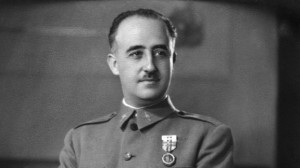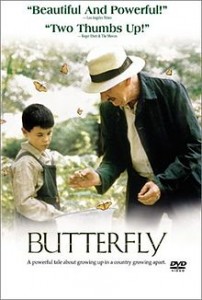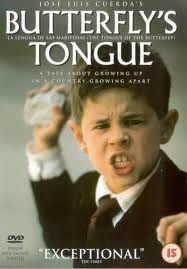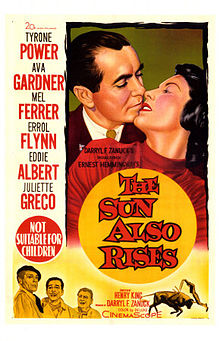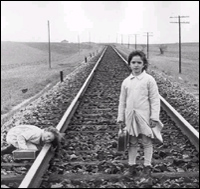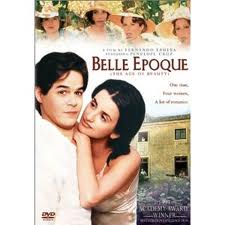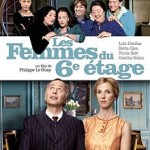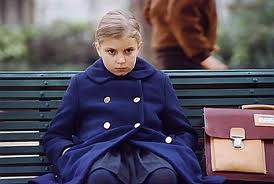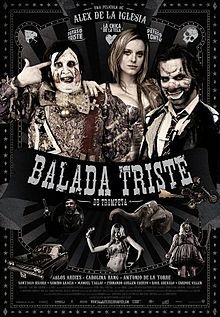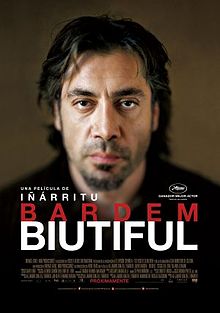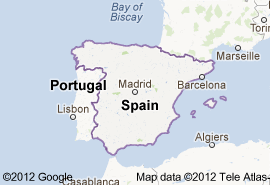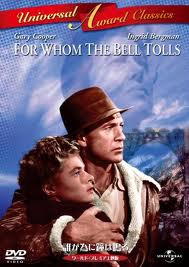 Hemingway was an “active intellectual”; he noticed whenever something was happening anywhere on earth, was instinctively attracted to that place, and actually went there. He was sent to France as a correspondent for the North American Newspaper Alliance. For Whom the Bell Tolls is a novel by Hemingway published in 1940 that depicts the Spanish Civil War (the battle between the fascist army led by Franco’s military authorities and the guerrilla army that opposed them) that was happening in the 1930s; it is told through a fictional American character who assisted the anti-fascists. This movie is the 1943 film adaptation of this novel. Gary Cooper, a close friend of Hemingway’s, was entrusted to the role after starring in A Farewell to Arms (1932), and Ingrid Bergman performed María, the protagonist’s lover.
Hemingway was an “active intellectual”; he noticed whenever something was happening anywhere on earth, was instinctively attracted to that place, and actually went there. He was sent to France as a correspondent for the North American Newspaper Alliance. For Whom the Bell Tolls is a novel by Hemingway published in 1940 that depicts the Spanish Civil War (the battle between the fascist army led by Franco’s military authorities and the guerrilla army that opposed them) that was happening in the 1930s; it is told through a fictional American character who assisted the anti-fascists. This movie is the 1943 film adaptation of this novel. Gary Cooper, a close friend of Hemingway’s, was entrusted to the role after starring in A Farewell to Arms (1932), and Ingrid Bergman performed María, the protagonist’s lover.
The monarchy was overturned in Spain in 1931, and a Republic based on a constitution was established; however, the government was unstable, and soon after the military coup d’état attempt in 1932, Spain fell into a state of chaos. The official Spanish Civil War was from 1936 to 1939; this movie depicts 1937. This was not a simple civil war; volunteer armies from the Soviet Union, Mexico, and other nations supported the Republicans, while the fascists led by military leaders such as General Franco got support from Japan, Germany, Italy, and Portugal. The powers were quite evenly matched, and it is said that at least 500,000 people died in battle. The movie depicts the interaction between the partisans/guerillas of the Republican faction, who are holed up in the mountains in the Segovia province near Madrid, and the protagonist—an American professor of Spanish and explosives specialist—who assists the guerrillas under the instructions of a Soviet Union commander. The bombers of the Italian army (an army Hemingway once supported) attacking the mountain in which the American protagonist is hiding demonstrates the change in Italy over the last 20 years.
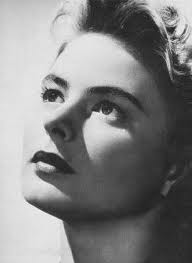 Returning to discussing the movie, when this movie was being made, many top actresses in those days expressed interest in the role of María, but in the end, a ballerina who did not have much acting experience was chosen. When filming began, the director was unsatisfied with her acting ability. It is said that before being fired from the role as María, she quit and gave up the role; Ingrid Bergman, who Hemingway was hoping for, was hurriedly chosen from the auditions, and the scenes with María were reshot. Ingrid Bergman said something like the following on this situation:
Returning to discussing the movie, when this movie was being made, many top actresses in those days expressed interest in the role of María, but in the end, a ballerina who did not have much acting experience was chosen. When filming began, the director was unsatisfied with her acting ability. It is said that before being fired from the role as María, she quit and gave up the role; Ingrid Bergman, who Hemingway was hoping for, was hurriedly chosen from the auditions, and the scenes with María were reshot. Ingrid Bergman said something like the following on this situation:
“The reason the ballerina gave up the role of María voluntarily is that the role of María is demanding; she has to go up and down cliffs where the caves are, and the ballerina was afraid she would injure her legs during filming. After all, the legs are most important for a ballerina, much like how the face is most important for an actress, I think.”
With her casual comment, she aptly says how “looks” were the most important thing in Hollywood in those days. It’s no wonder that Hollywood movies in the 1950s or earlier were little more than elementary school plays performed by handsome men and beautiful women.
Today, of course, there are some actors such as Julia Roberts, Brad Pitt, or Tom Hanks who are primarily chosen for their popularity and, if they accept the role, will receive a performance fee of multi-million (!) dollars unconditionally. But nowadays, the criteria for selecting an actor often seem to be, “How well can they perform the role realistically?” In this sense, what are most important are the background of the actor and their acting ability to realistically express the character’s historical context, age, personality, and ethnicity. Also, since filmmaking is a team project, they must be a team player who gets along with everyone, healthy, punctual, and professional so as to not waste other people’s time. Since “time is money,” you can’t waste time.
Actresses of the same generation as Ingrid Bergman include Vivien Leigh, Olivia de Havilland, Joan Fontaine, Jennifer Jones, and Loretta Young, and these women came before Hollywood’s flowers, such as Grace Kelly, Audrey Hepburn, Marilyn Monroe, and Elizabeth Taylor. These actresses of Ingrid’s generation died young and had short-lived activity as actresses, but Ingrid Bergman continued working as an actress up until she died in the 1980s, and kept her reputation as a great actress until she died. Therefore, she was an actress with more than just a beautiful face.

